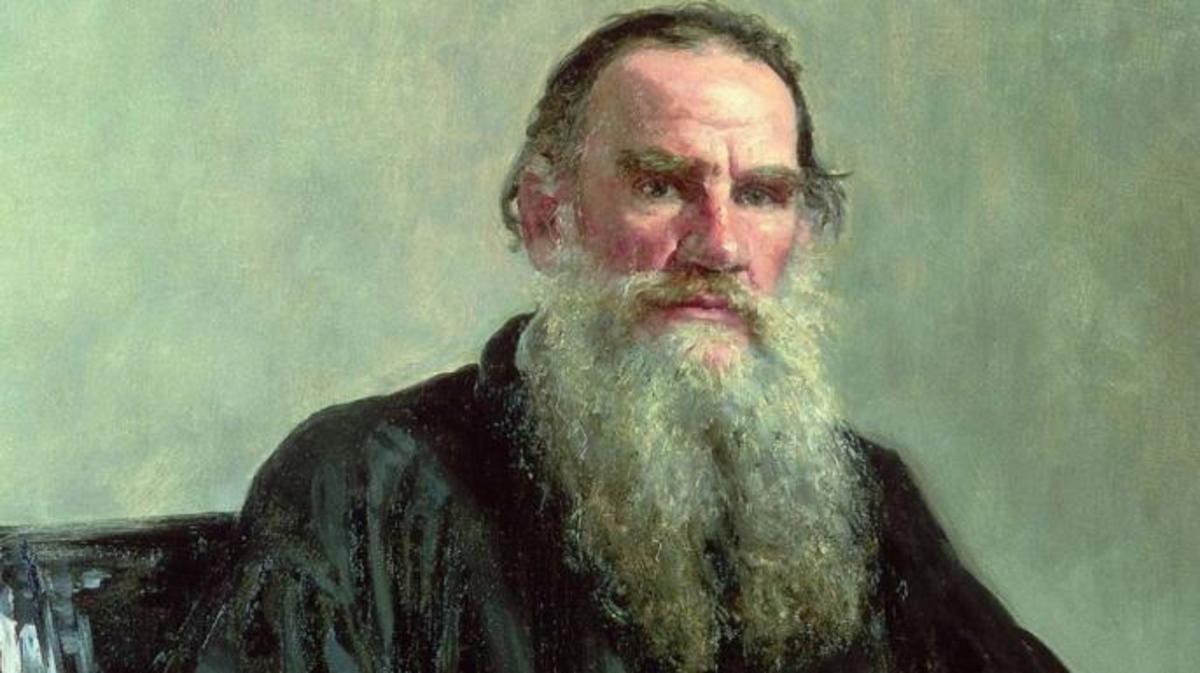Leo Tolstoy Biography
Leo Tolstoy is one of the most respected writers of the 19th century. He was born on September 9, 1828, in a prosperous family of Russia, about 100 miles south of Moscow, in the principality Yasnaya Policy.
His parents had died in his childhood, so Tatya did his aunt. Like senior classmates, they were appointed as skilled scholars for their education. Boys and girls were taught in the form of horse riding, hunting, dancing and playing cards.
In 1844, Tolstoy entered the University of Kazan, and by 1847 he studied the Eastern languages and the Law Code. They had to leave the university without having graduated due to the issue of split the principality.
Coming into the principality, he tried to improve the condition of his farmer Asamiio. In 1851, Leo Tolstoy entered the army for some time. His appointment took place in the long battle of mountainous tribes in the Caucasus, where he used to write and read during the holidays.
This is what he wrote his first creation, Childhood, which was published in the letter entitled The Contemporary in the name of LT.
In 1854, Leo Tolstoy was sent on the front of Danube. From there, he made a change in Sebastopol, which was a strong front of the Crimean War. Here he got an opportunity to see war and war operators closely.
On this front, they remained till the end. As a result of this, his work came out in “Sebastopol Squeezes” (1856). In 1855 he travelled to Pittsburgh, where the writers honoured him with great respect. In 1857 and in 1860-61, he travelled to different countries of Western Europe. In this journey, he got to see the death of his brother suffering from tuberculosis.
On returning from the journey, he opened a school for the children of Krishakas in his village Yasnaya Polyana which was successful. On behalf of the school, a journal called Yasnaya Polyana came out on the name of the village. In 1862, Tolstoy married to a high school woman named Safia Beheus.
His marriage life was great but the distraction was a bit of a furore. In 1863, until 1869, Tolstoy’s time was spent in the composition of War and Peace and in the composition of Anna Catania, from 1873 to 1876. Both of these compositions raised Tolstoy’s literary fame very high.
The period from 1875 to 1879 was a big disappointment for them. He had lifted his faith from God and he started to commit suicide, but in the end, he conquered it. In 1878-1879 he composed his controversial work called confession.
His great work, The Death of Even ales, was published in 1886. Towards the end of the 19th century, Tolstoy’s servitude towards the poor and helpless people increased so much that he donated all the income to Russia in his works.
He allowed his wife to take as much portion as it was compulsory for the family to take care of. In the year 1910, he decided to leave his native village Yasnaya Polyana forever. On November 22, 1910, at the station’s station Estapova, he died due to deteriorating health.
Stories of Leo Tolstoy
1. What is the basis of human life? Munshi Premchand
2. A Chingari burns the house – Munshi Premchand
3. Clemency-munshi Premchand
4. Two older men-Munshi Premchand
5. Hunting of the polar bear – Munshi Premchand
6. God-Munshi Premchand in Love
7. Sasuke Sumant-Munshi Premchand
8. Rajput Prisoner-Munshi Premchand
9. Merciful compassion-Munshi Premchand
10. How much land? – Jainendra Kumar
11. Three questions – Chandra Mauleshwar Prasad
12. How do people live? – Chandra Mauleshwar Prasad
14. Surat’s Coffee House
15. Three saints
16. Short stories – Sukesh Sahni
17. Sensible judge
Also Read: William Shakespeare Biography
Share via:



Amazing! This blog looks just like my old
one! It’s on a completely different topic but it has pretty much the same page layout and design. Excellent choice of colors!
First of all I want to say excellent blog! I had a quick
question which I’d like to ask if you don’t mind. I was interested to know how you center yourself and clear your mind before writing.
I’ve had difficulty clearing my thoughts in getting my ideas out.
This article is genuinely a pleasant one.